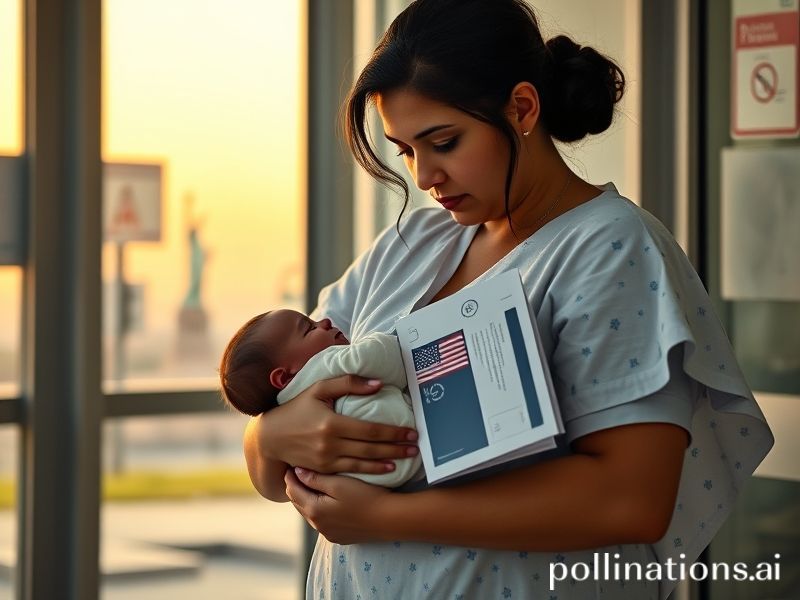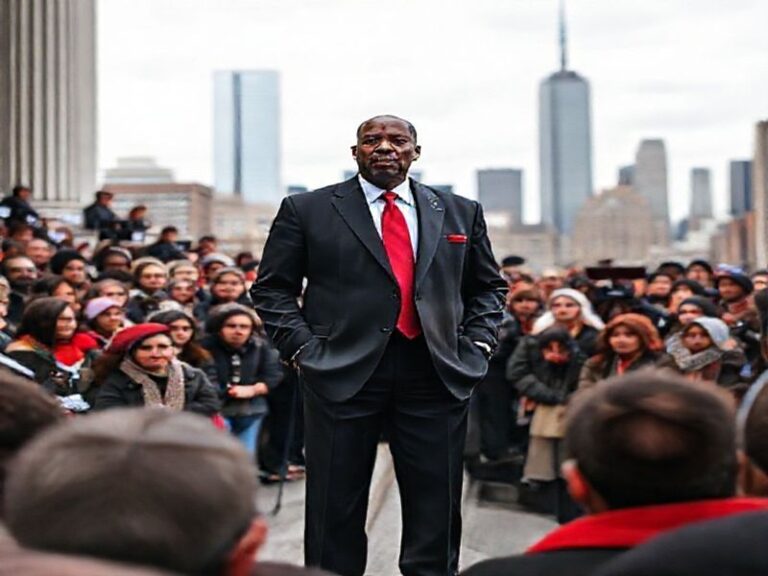Born on the Right Conveyor Belt: How Birthright Citizenship Became the World’s Most Overbooked Flight
Birthright Citizenship: The World’s Original Frequent-Flyer Program
By Our Man in the Departures Lounge
In the fluorescent-lit purgatory of international airports, babies still arrive with the same loophole their grandparents exploited: cry loud enough and the border officer stamps your passport with the ink of citizenship, no credit check required. Birthright citizenship—jus soli, “right of the soil” for those who prefer Latin to logic—remains the planet’s most democratic glitch in an otherwise ruthlessly tiered world. While frequent-flyer elites queue for priority boarding, newborns slide straight into the platinum tier of national belonging simply by choosing the right uterine departure gate.
Take the United States, the Disney World of natal paperwork: one push on the right patch of Californian linoleum and, presto, you’re not just alive but also American, complete with a lifelong subscription to student-loan anxiety and the constitutional right to sue over coffee temperature. Republicans theatrically threaten to repeal this 14th-Amendment coupon every election cycle, Democrats respond with equally theatrical pearl-clutching, and the rest of the planet watches like it’s a telenovela with worse dialogue.
Yet the U.S. is merely the loudest toddler in the sandbox. Canada quietly hands out passports in maple-scented delivery rooms, Brazil does the same under carnival lights, and even Mexico—where politicians otherwise preach sovereignty with the fervor of a telenovela villain—keeps the door open for any child born within its cactus-lined borders. Across the Atlantic, however, the Old World prefers jus sanguinis, “right of blood,” a charmingly medieval term suggesting you’re only legitimate if your ancestors were also sufficiently inbred. Germany spent most of the 20th century perfecting this genealogical snobbery before grudgingly sprinkling jus soli crumbs for the children of its Turkish gastarbeiters. France, never one to miss a paradox, offers citizenship to kids born on baguette-scented soil but only if they ask nicely at 18 and can prove they’ve drunk enough subsidized wine to qualify as culturally pickled.
The global implications are deliciously ironic. Chinese maternity houses in Los Angeles suburbs—where “You’re not paying rent, you’re buying a green card starter kit”—operate like hedge funds arbitraging geopolitical anxiety. Meanwhile, Nigerian parents time conception to coincide with a layover in London Heathrow’s Terminal 5, proving that the true heirs to empire are not the British but anyone who can afford a premium economy ticket. Even the ultra-wealthy Russians, who already own three passports and half of Cyprus, still covet that bonus U.S. one, because nothing screams oligarch like a Malibu-born heir whose first words are “tax shelter.”
Then there are the unintended consequences. Tiny Malta sells citizenship outright—€650,000 and you’re Maltese, no embarrassing labor required—making the island both a Mediterranean tax haven and a punchline to the entire concept of national loyalty. In the Caribbean, St. Kitts pioneered the “citizenship-by-investment” racket so thoroughly that its passport now has more stamps from Dubai real-estate expos than from actual Kittitian customs officers. The UN clucks disapprovingly, which is what the UN does instead of solving problems.
And yet, beneath the cynicism, birthright citizenship remains one of humanity’s rare remaining egalitarian hacks. A Honduran baby born in Houston has, on paper, the same claim to the American dream as a Kennedy scion—minus the yacht, plus deportation risk for the parents. It’s a lottery ticket stapled to a placenta, redeemable in 18 years if ICE hasn’t collected the debt first. For all the nationalist thundering, no algorithm has yet been invented to predict which wailing infant will grow up to cure cancer or, more likely, invent a slightly better vape pen. Nations pretend they choose their citizens; birthright citizenship is the world’s gentle reminder that, actually, citizens choose nations—often by the simple act of showing up before the cord is cut.
So the next time you’re trapped in a departure lounge, watch the arrivals gate. Every so often a red-faced newborn is wheeled past, fresh from the duty-free miracle of life. Somewhere in that blanket is a brand-new passport holder who may one day decide whether your pension still exists. Give the kid a nod: they’ve just joined the world’s most exclusive club, membership dues prepaid by geography and biology. The rest of us merely queue for upgrades.







